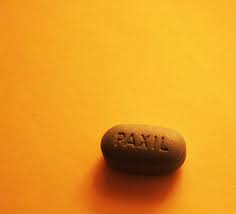According to the CDC, January is National Birth Defects Prevention Month. New research continues to link various SSRI antidepressants with birth defects and neurological abnormalities in newborns. The latest study to examine this topic, a meta-analysis led by Dr. Anick Bérard, found a 23% increased risk for birth defects, and a 28% increased risk for heart problems, in the infants of women who took the SSRI Paxil (paroxetine) during their first trimester.
“Given that the benefits of antidepressants overall, and selective serotonin reuptake inhibitors including paroxetine specifically, during pregnancy is questionable at best,” wrote Bérard, “any increase in risk – small or large – is too high.”
 An increasing number studies have linked the use of psychiatric drugs, and specifically antidepressants, in pregnancy to a wide-range of problems in newborns, including: spontaneous abortion, malformations, premature birth, low birth weight, neonatal withdrawal symptoms, pregnancy-induced hypertension, and delayed neurological functioning. Another recent study, linked the use of SSRIs in pregnancy to an 87% greater likelihood of having a child with Autism Spectrum Disorder (ASD).
An increasing number studies have linked the use of psychiatric drugs, and specifically antidepressants, in pregnancy to a wide-range of problems in newborns, including: spontaneous abortion, malformations, premature birth, low birth weight, neonatal withdrawal symptoms, pregnancy-induced hypertension, and delayed neurological functioning. Another recent study, linked the use of SSRIs in pregnancy to an 87% greater likelihood of having a child with Autism Spectrum Disorder (ASD).
Despite the increased scientific awareness of these risks, antidepressant use during pregnancy is estimated to have quadrupled since the early nineties. The researchers note that up to 13% of women in the US take an antidepressant during pregnancy, compared to 4.5% in Canada and 4.8% in the UK.
It was not until relatively recently that researchers began to notice an increased risk for birth defects resulting from the commonly prescribed antidepressant Paxil. In 2005, a small study conducted by the drug’s manufacturer, GlaxoSmithKline (GSK), was uncovered that suggested a risk for cardiac malformations. Since then, various studies have been looked into the use of SSRIs during pregnancy and their results have shown “a general trend toward an increased risk.”
It is known that antidepressants can cross from the mother into the developing fetus through the placental barrier, and other research reveals “significant concentrations of antidepressants have been found in the amniotic fluid.” Once the drugs cross the placental barrier, “it is thought that SSRIs may affect fetal cardiovascular and central nervous system development.”
The study, to be published in the British Journal of Clinical Pharmacology, aimed to assess the risk of heart malformations in infants exposed to paroxetine (Paxil) during pregnancy. The researchers performed a systematic review of studies performed between 1996 and November 2015 that tracked women taking antidepressants and reported significant birth defects. A total of 23 studies were included.
They found that first-trimester use of paroxetine was associated with an increased risk for all major congenital birth defects and major heart malformations. The increased risk was not dependent on the demographic differences of the study populations.
They conclude:
“The baseline risk of major malformations is 3% and of cardiac malformations is 1%. However, given that the benefit of using these medications during pregnancy is debatable, any increase in risk is significant. Hence, regardless of the size of the risk, it is essential to disseminate these findings given that it should be used to change practice, and impact appropriate antidepressant use during pregnancy.”
*
Mad In America Continuing Education (MIACE) is currently offering a free online course on “Antidepressants & Pregnancy: The risks and possible harm to normal fetal development and the newborn child” by Dr. Adam Urato, M.D. of Tufts University School of Medicine. Urato reviews unbiased research on the risks vs. benefits of prescribing antidepressant medications to pregnant women and reviews research on alternatives to antidepressants. Click here for more info.
*
Bérard, A., Iessa, N., Chaabane, S., Muanda, F. T., Boukhris, T., & Zhao, J. P. (2015). The risk of major cardiac malformations associated with paroxetine use during the first trimester of pregnancy: A systematic review and meta‐analysis. British journal of clinical pharmacology. (Abstract)















Justin,
You should not publish the title of this article as “Paxil Increases Risk of XXX”. It is misleading. The title should be “Paxil Linked to XXX, or Paxil Associated with XXX, or Paxil Correlated with XXX”. Nothing in this study gives clear evidence that Paxil directly causes heart problems and birth defects in infants. The relation is an association or correlation only. There could be 3rd factors in women who take such drugs that contribute to the problems. MIA should report on this accurately and not mislead readers with titles that infer causation where it has not been clearly shown.
The strong possibility that Paxil may cause/increase such risks can be communicated clearly without bending the truth.
Report comment
BPD, thanks for the comment. I can see how “increases risk” could be misleading, and how it might imply a causal relationship that is not proven in the research, however, I do not think “increases risk” is technically incorrect because the study shows that those on the drug have a greater probability of suffering this adverse event. If some intervention is consistently correlated with an increased probability for a certain outcome, I don’t think it is unfair to say that the intervention “increases the risk” for that outcome. In epidemiology, they typically call something a “determinant” or a “risk factor” even when it is only a correlational relationship. For instance, being elderly is a risk factor- or increases the risk- for various diseases, but being old doesn’t necessarily cause someone to get that disease. I think that this is the sense of “increased risk” that the research article repeatedly makes use of.
Here is a quote straight from the research article itself:
Alas, I see how the language could be misleading and have made the change. Thank you for bringing this to my attention.
Report comment
I was one of first on Zoloft, Western Australia, freebies in docs cupboard, went to get on script, werent released yet, so he gave me more freebies…. in the chemist, I asked to look up side effects, I was particularly concerned, should I fall pregnant. The book stated clearly “no side effects noted in use in pregnancy”” I now realise that translates to “never, ever tested on pregnant women””. Outcome? fell pregnant, gave up Zoloft within 8 weeks, too late…. seemingly beautiful healthy baby boy, dead in agony by day 3, yes a Zoloft half a heart baby. I wrote to TGA, reported it everyhere, even wrote to PMs office. Now they are suing in USA, I got curious, and asked for my report from TGA, after 19 years? no report, they filed it in the damn bin. I try and do another report, this year, ask to see it, refused, as it is confidential??? beg pardon, just want to make sure it is correct. Finally got new report, yep blames everything EXCEPT zoloft…………. What is wrong with these morons? Too hurtful, to try again, I have given up, the fraud, the hiding results, is just too damn blatant.
Report comment
My heart goes out to you. I share your rage. One of my sons has a form of autism and learning difficulties that I attribute to my use of Phenergan for morning sickness for 5 months during my pregnancy. Pregnant women and all of us need to beware of using all of these pharmaceuticals. We are regularly misled and lied to by Big Pharma and other corporations.
Report comment
I wonder how the manufactureres will fight back?
They will be planning thier stratagy right now.
Report comment
I can guess, John … First they’ll talk about the “absolute risk” being small. That WOULD be a valid point if antidepressants were highly effective meds for a terrible disease that had no other treatments. (That’s wrong on all three points of course.)
So their main weapon will be bogus claims that depression itself is a massive biological event that can harm the fetus all by itself. Which is BS, but which they can still get paid experts to claim. This “balanced” article from the Boston Globe/STAT is a good example. It’s more “open-minded” than many articles. But while it puts the studies of medication harms under the microscope, it gives a free pass to a “study” that supposedly shows permanent brain damage to the brains of children whose mothers were depressed while pregnant. Even though this “study” is based on 1) reviews of rat studies and 2) rank speculation. Arrgh.
http://www.statnews.com/2015/12/14/prenatal-antidepressants-autism/
Report comment